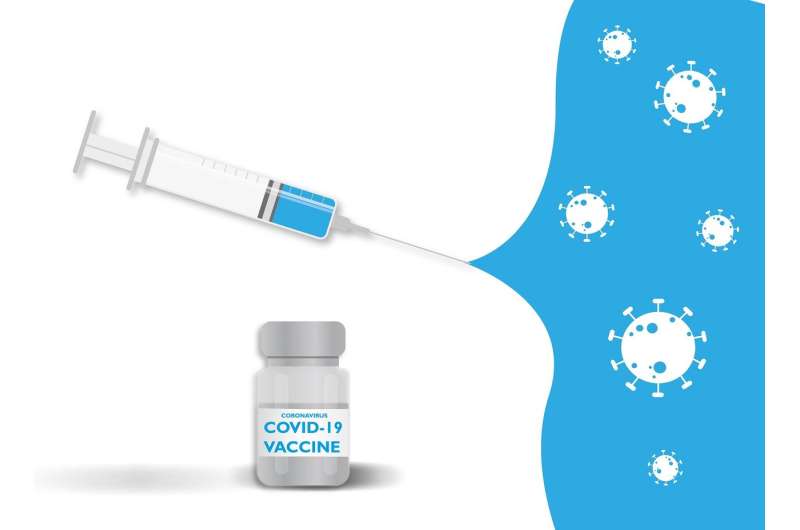Equitably allocating COVID-19 vaccine

Equitable implementation of COVID-19 vaccine delivery is a national and global priority, with a strong focus on reducing existing disparities and not creating new disparities. But while a framework has been recognized for equitable allocation of COVID-19 vaccine that acknowledges the rights and interests of sexual and gender minorities (SGM), it fails to identify strategies or data to achieve that goal.
A new study with support from researchers at the University of Pennsylvania School of Nursing (Penn Nursing) examined the prevalence of COVID testing and diagnosis and assessed COVID-19 vaccine acceptance among a large national sample of SGM. It showed that medical mistrust, social concern, and race were significantly associated with decreased COVID-19 vaccine acceptance by SGM participants. Results have been published in the article "COVID-19 Vaccine Acceptance Among an Online Sample of Sexual and Gender Minority Men and Transgender Women" in the journal Vaccines.
"Given that stigma and discrimination drive health inequities among SGM, which may result in increased risk of severe COVID-19 disease and influence COVID-19 vaccine acceptance, research examining COVID-19 vaccine acceptance among SGM is needed," says Daniel Teixeira da Silva, MD, National Clinician Scholar and Postdoctoral Fellow at the Penn Program for Sexuality, Technology and Action Research (PSTAR) and the lead investigator of the study.The psychosocial and economic impact of the COVID-19 pandemic disproportionately affects SGM compared to cisgender heterosexual populations. Studies show that since the beginning of the COVID-19 pandemic, SGM have been more likely to experience job loss, income reduction, and decreased access to gender-affirming resources. While SGM populations are disproportionately vulnerable to poor COVID-19 outcomes, little has been known about COVID-19 vaccine acceptance among this group until this study.
The study showed that SGM who experienced medical mistrust were less likely to accept a COVID-19 vaccine. In addition, SGM participants in the study who identified as Black reported decreased COVID-19 vaccine acceptance. COVID-19 vaccine acceptance was greater among study participants who endorsed altruistic attitudes and were less concerned about COVID-19 social concerns.
"The confluence of disproportionate psychosocial and economic burdens with increased vulnerability to minority stressors among SGM may decrease COVID-19 vaccine uptake and further deepen health inequities," says José A. Bauermeister, Ph.D., MPH, Chair of the Department of Family and Community Health at Penn Nursing, one of the co-investigators of the study.
Healthcare provider recommendations have been found to be associated with increased COVID-19 acceptance. These results suggest that providers and public health efforts that approach medical mistrust with empathy and validation—and which also address concerns about discrimination and support altruistic intentions—may be more successful engaging SGM in COVID-19 vaccine uptake.
"As the planning of COVID-19 vaccine rollout efforts is conceptualized and designed, these data may inform equitable implementation strategies and prevent worsening health inequities among SGM populations," says Bauermeister.




















